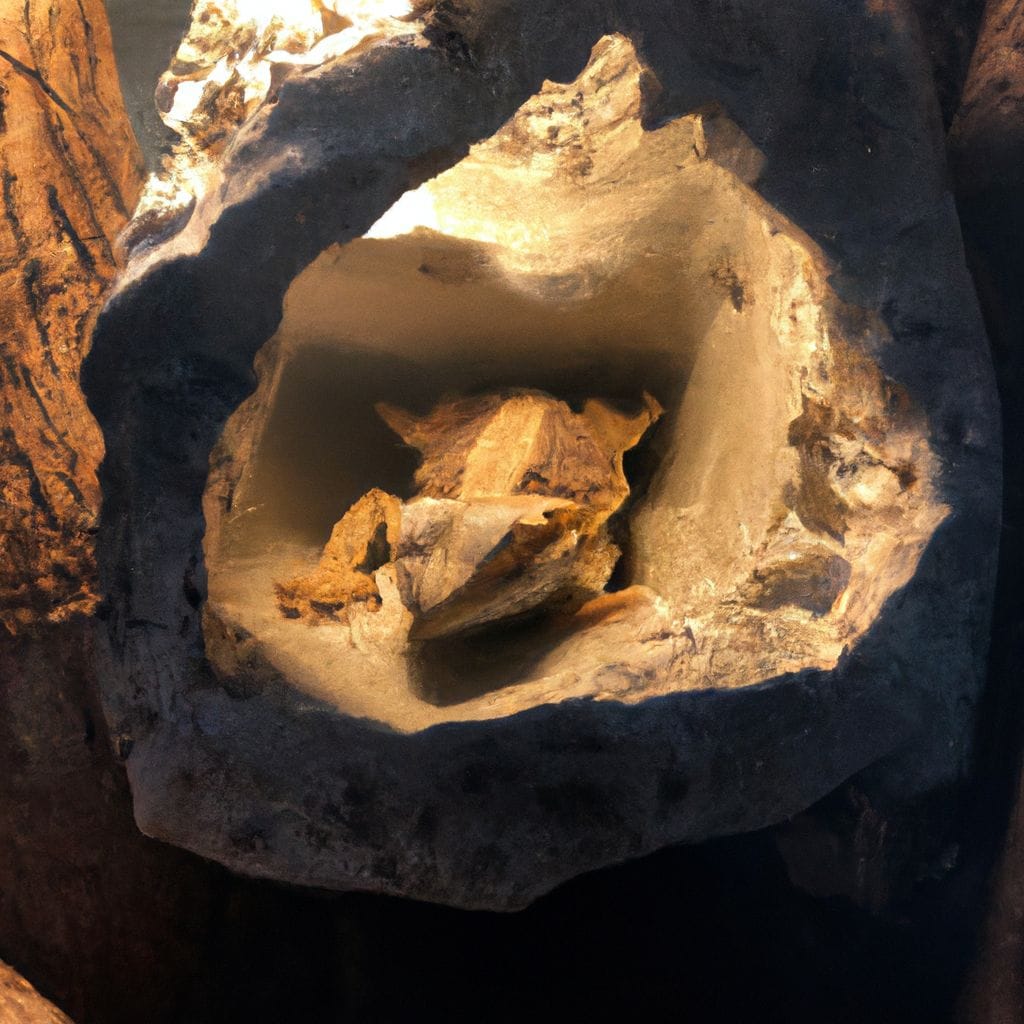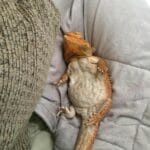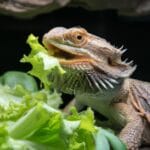Curious about your bearded dragon’s winter habits? They likely brumate, a natural period of dormancy similar to hibernation. This comprehensive guide covers everything you need to know about bearded dragon brumation, from recognizing the signs to providing optimal care. [https://www.lolaapp.com/amino-acids-quiz-game]
Recognizing Brumation: Is Your Dragon Ready for a Winter Nap?
Your usually active beardie might seem a little off as the weather cools. Perhaps they’re less interested in their favorite insects, sleeping more, and generally less interactive. Don’t worry! These changes likely signal brumation, a natural process crucial for their health and preparation for the breeding season. It’s triggered by environmental changes like shorter days and cooler temperatures.
Signs Your Dragon May Be Brumating:
- Appetite Changes: A significant decrease in appetite, possibly even refusing food altogether, is a primary indicator.
- Increased Sleep: They’ll sleep significantly more than usual, possibly for days or weeks at a time.
- Hiding Behavior: Seeking out darker, quieter spots in their enclosure, sometimes burrowing if the substrate allows.
- Reduced Activity: Lethargy, reduced basking, earlier bedtime, and less interaction.
- Digestive Slowdown: Decreased bowel movements due to reduced food intake.
- Possible Color Changes: Skin might appear duller, sometimes with greyish or brownish tones. (This isn’t always a reliable indicator.)
Brumation Care: Supporting Your Dragon’s Winter Rest
While brumation is natural, proper care is essential for a healthy experience.
Pre-Brumation Checklist:
- Veterinary Check-up: A pre-brumation vet visit is highly recommended to rule out underlying health issues and ensure your dragon is in optimal condition.
- Environmental Adjustments: Gradually decrease enclosure temperature and lighting over several weeks to mimic natural seasonal changes. Research the ideal temperature range for brumation. [https://www.lolaapp.com/white-fuzzy-caterpillars]
- Create a Cozy Retreat: Offer a secure, dark hide or burrow where your dragon can feel safe and comfortable.
During Brumation:
- Hands-Off Approach: Minimize handling and disturbance as much as possible to avoid stress and conserve their energy.
- Hydration is Key: Provide fresh water daily, even if they don’t seem to drink much. Proper humidity is crucial to prevent dehydration.
- Weight Monitoring: Regularly check your dragon’s weight to ensure they aren’t losing too much. Significant weight loss warrants a veterinary consultation.
- Occasional Food Offering: Offer food occasionally, but don’t be concerned if they refuse. Their appetite will be significantly reduced or absent.
Post-Brumation Revival:
- Gradual Reintroduction: Slowly increase enclosure temperature and lighting over several weeks, mimicking the transition to spring.
- Resume Regular Feeding: Offer food and water regularly as they become more active. Their appetite should gradually return.
- Health Monitoring: Observe your dragon for any signs of dehydration, illness, or difficulty readjusting. Be patient, as it can take time for them to fully “wake up.”
Brumation vs. Illness: Knowing the Difference
While brumation is natural, some signs can also indicate illness. Consult a reptile veterinarian if you notice any of the following:
- Respiratory Issues: Wheezing, open-mouth breathing, nasal discharge.
- Parasites: Lethargy and loss of appetite. Fecal testing is necessary for diagnosis.
- Metabolic Bone Disease: Weakness and lethargy.
Brumation FAQs: Addressing Common Concerns
- How long does brumation last? Typically 1-3 months, though it can vary from a few weeks to four months. Individual dragons, especially in captivity, can have unpredictable patterns.
- Do all bearded dragons brumate? Not all, especially young dragons. Brumation can sometimes be skipped entirely, particularly in captive environments with less distinct seasonal changes.
- Should I force my dragon to wake up? No, allow them to wake naturally. Interrupting brumation can be stressful and detrimental.
- Is brumation harmful? No, brumation is a natural and essential part of a healthy bearded dragon’s life cycle.
Ongoing Research and Evolving Knowledge
Current research suggests brumation’s triggers are complex and not fully understood. Factors like temperature, light cycles, age, and overall health likely play a role. Ongoing studies continue to explore the nuances of brumation and its long-term impact on health. Some theories suggest it regulates reproductive cycles and/or conserves energy during periods of reduced food availability.
By understanding brumation and providing the right care, you can help your bearded dragon experience a healthy and restful winter slumber, emerging refreshed and ready for the next season. Remember, consult a reptile veterinarian for any concerns.
- Sept 31 Myth: Unveiling Calendar Secrets - March 18, 2025
- How Long & Till December 18, 2025: Accurate Countdown Guide - March 18, 2025
- Discover Japanese Artists: A Complete History - March 18, 2025

















3 thoughts on “The Complete Guide to Bearded Dragon Brumation: Ensuring a Healthy Winter Slumber”
Comments are closed.